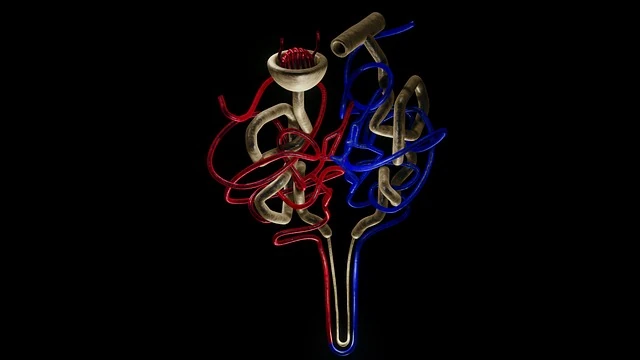The kidney is an extraordinary organ, highly efficient yet remarkably delicate in its function.
Its primary role involves filtering blood and converting the filtrate into urine.
Typically, two kidneys collectively produce approximately 1 to 1.5 liters of urine per day.
Interestingly, approximately one in every 2000 individuals is born with a one kidney, representing a 0.05% chance of encountering such cases, with a higher incidence among males.

Often, individuals may remain unaware of this condition until it is detected via ultrasound or X-ray, as it usually does not present any abnormal symptoms.
Now, the question arises: Can one live with just one kidney?
The unequivocal answer is “Yes,” albeit individuals with a one kidney must exercise greater caution and prioritize maintaining a healthy lifestyle to safeguard their one kidney.
Each healthy individual possesses approximately 1.2 million microscopic functional units known as nephrons in each kidney.
Nephrons play a pivotal role in blood filtration and urine formation.
With age, there’s a natural decline in renal function; between the ages of 25 and 80, individuals may lose 60% to 70% of their nephrons, with up to one-third of the remaining nephrons becoming non-functional.
Consequently, kidneys in octogenarians are 20% to 40% smaller than those in their thirties and receive only half as much blood.
This physiological change contributes to the common issue of over-medication in the elderly, as aging kidneys become less efficient at eliminating drugs and their byproducts from the body.
Complications associated with having a single kidney include an elevated risk of proteinuria (high levels of protein in the urine), abnormal functioning of the remaining kidney, hypertension (high blood pressure), and hypertrophy (rapid growth and enlargement) of the remaining kidney.
Limitations of Living with One Kidney: Things You Can’t Do
Living with one kidney is entirely feasible for many individuals, thanks to the remarkable adaptability of the human body.
However, there are certain limitations and considerations that individuals with a single kidney should be aware of.
Here are some things you can’t do with just one kidney:
Heavy Alcohol Consumption: Excessive alcohol intake can put a strain on the kidneys, leading to dehydration and potential damage. Individuals with one kidney should be cautious and limit their alcohol consumption to maintain kidney health.
Participating in Contact Sports: Engaging in contact sports such as football, wrestling, or boxing increases the risk of injury to the kidneys. With only one kidney, the risk of damage from physical trauma is heightened, making it advisable to avoid such activities.
Overuse of Painkillers: Certain pain medications, particularly non-steroidal anti-inflammatory drugs (NSAIDs) like ibuprofen and aspirin, can be harmful to kidney function, especially when used excessively or over a prolonged period. Individuals with one kidney should consult their healthcare provider before taking any pain medication and avoid over-reliance on such drugs.
Ignoring Hydration Needs: Adequate hydration is crucial for kidney health as it helps in the elimination of waste products from the body. Individuals with one kidney should prioritize staying well-hydrated and avoid situations where dehydration may occur, such as excessive heat or strenuous physical activity without proper fluid intake.
Ignoring Symptoms of Kidney Issues: With only one kidney, it’s essential to be vigilant about any signs or symptoms of kidney problems, such as changes in urine color or volume, persistent pain in the side or lower back, or swelling in the legs or ankles. Ignoring these symptoms could lead to complications that may affect overall health.
Ignoring Dietary Recommendations: Following a healthy diet is essential for maintaining kidney function, especially when living with one kidney. Individuals should be mindful of their sodium intake, limit processed foods, and consume a balanced diet rich in fruits, vegetables, lean proteins, and whole grains to support kidney health.
Neglecting Regular Medical Check-ups: Regular monitoring of kidney function through medical check-ups and screenings is crucial for individuals with one kidney. These check-ups can help detect any changes or complications early on, allowing for timely intervention and management.
Ignoring Medical Advice: Perhaps the most important thing individuals with one kidney should never do is ignore medical advice. Whether it’s regarding medication, lifestyle changes, or managing underlying health conditions, following the guidance of healthcare professionals is essential for preserving kidney health and overall well-being.
In conclusion, while living with one kidney may come with certain limitations, it’s entirely possible to lead a fulfilling and healthy life with proper care and awareness.
By being mindful of these restrictions and taking proactive steps to maintain kidney health, individuals with one kidney can minimize risks and enjoy a good quality of life.
👇👇👇
Which Planet Rains Rubies and Sapphires




